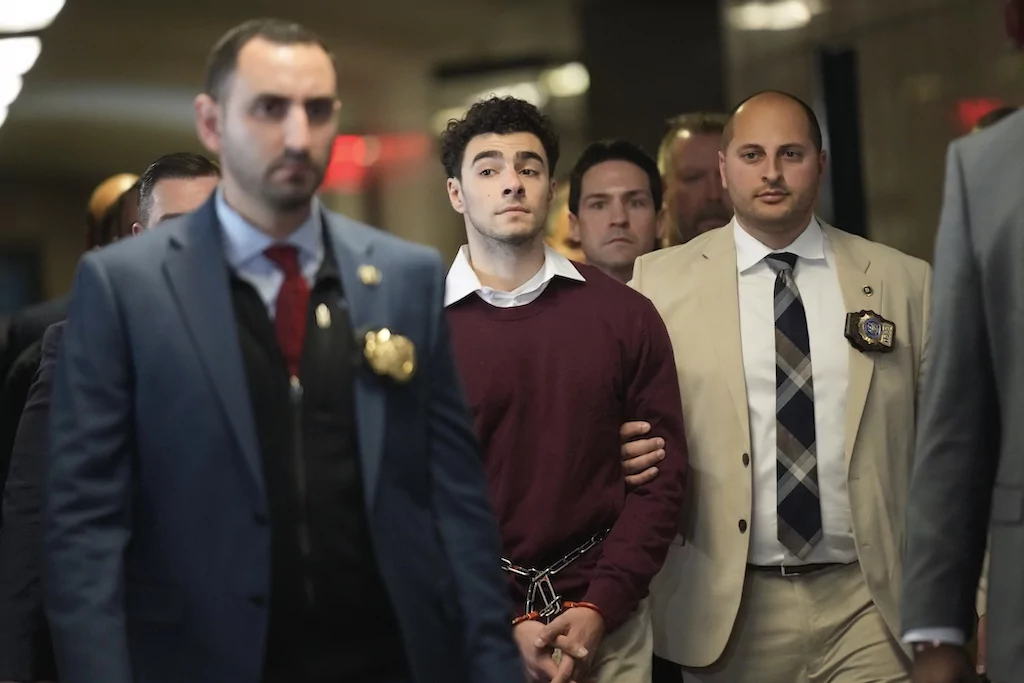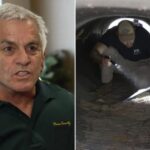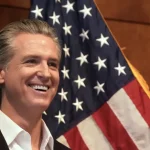
Luigi Mangione, the 26-year-old suspect in the killing of UnitedHealthcare CEO Brain Thompson, pleaded not guilty to New York’s 11 charges of murder and terrorism.
Mangione entered court Monday with his hands and feet shackled, wearing a maroon sweater over a white-collared shirt and khaki pants.

His initial appearance in New York’s state’s trial court Monday was preempted by federal prosecutors also charging Mangione in the shooting. The federal charges carry the possibility of the death penalty, while the maximum sentence for the state charges is life in prison without parole.
Prosecutors have said the two cases will proceed on parallel tracks. His state charges are expected to go to trial before the federal charges.
Authorities believe Mangione is the person who shot and killed Thompson earlier this month as Thompson was on his way to a hotel in midtown Manhattan for an investor conference. After a five-day search for the suspect, Mangione was found in a McDonald’s restaurant in Altoona, Pennsylvania. Local police said Mangione was carrying a gun that matched the one used in the shooting and a fake ID, matching the ID he allegedly used to check into a hostel in New York before the murder, at the time of his arrest.
Last week, Mangione was then extradited from Pennsylvania to New York City. Upon landing in a helicopter, he was seen wearing an orange jumpsuit surrounded by a heavy police presence and New York Mayor Eric Adams.
Manhattan District Attorney Alvin Bragg said Mangione was charged with terrorism in addition to murder because the state’s terrorism law reflected the severity of a “frightening, well-planned, targeted murder that was intended to cause shock and attention and intimidation.”
CLICK HERE TO READ MORE FROM THE WASHINGTON EXAMINER
“In its most basic terms, this was a killing that was intended to evoke terror,” Bragg said. “And we’ve seen that reaction.”
Karen Friedman Agnifilo, Mangione’s lead attorney, has accused federal and state prosecutors of presenting conflicting legal theories, saying in federal court last week that their approach is “very confusing” and “highly unusual.”







